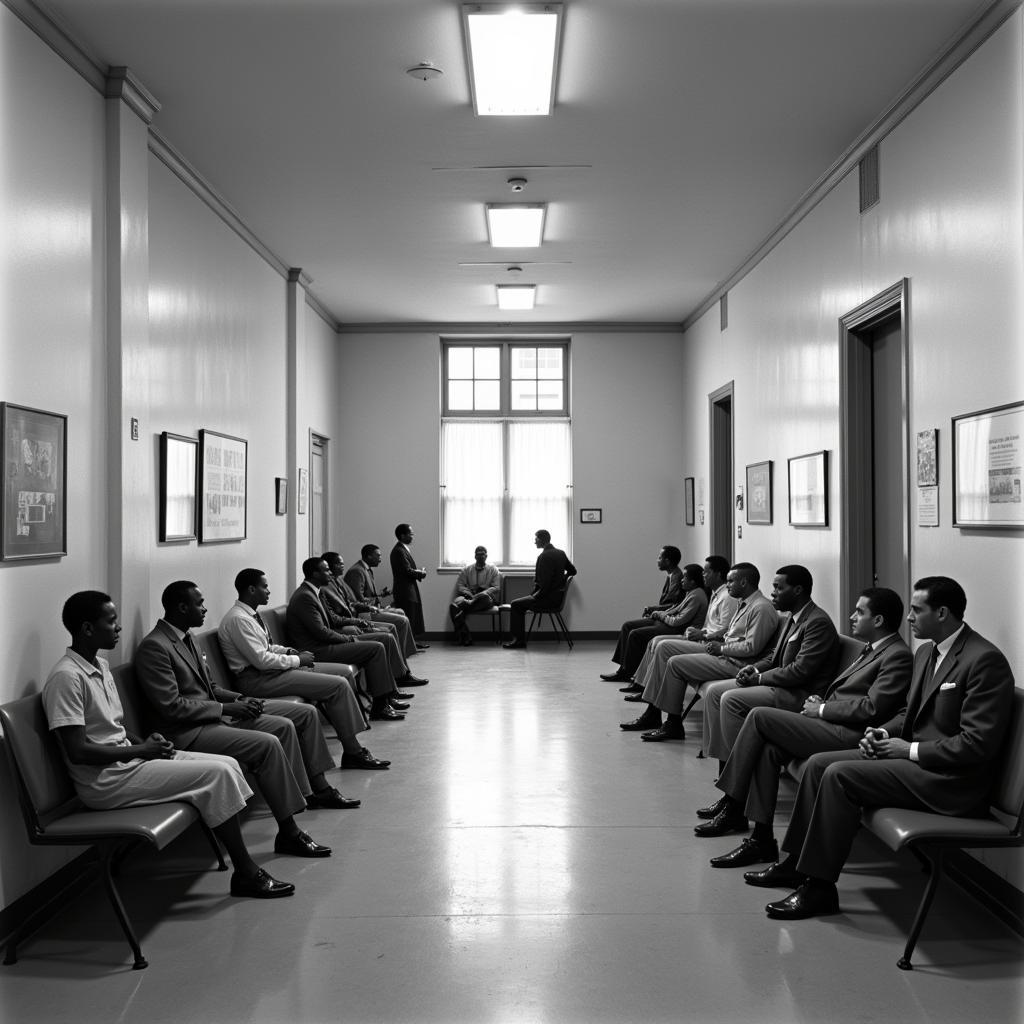Navigating the Complexities of African American Health Care
African American Health Care is a multifaceted issue deeply rooted in historical and systemic inequities. This article delves into the unique challenges faced by African Americans in accessing quality healthcare and explores potential solutions for a more equitable future.
Understanding the Disparities: A Historical Perspective
To fully grasp the complexities of African American health care, it’s essential to acknowledge the historical context. Decades of segregation, discrimination, and limited access to resources have created a system where health outcomes are often dictated by race and socioeconomic status.
 Historical Disparities in African American Healthcare
Historical Disparities in African American Healthcare
Socioeconomic Factors and Their Impact
Socioeconomic factors play a significant role in shaping health outcomes for African Americans. Higher rates of poverty, unemployment, and lack of health insurance create barriers to accessing timely and preventative care. These factors contribute to the prevalence of chronic conditions like diabetes, heart disease, and certain types of cancer within the community.
 Socioeconomic Factors Impacting African American Health
Socioeconomic Factors Impacting African American Health
Addressing Implicit Bias in Healthcare
Implicit bias, the unconscious attitudes and stereotypes that influence our actions, can have a profound impact on healthcare delivery. Studies have shown that implicit bias among healthcare providers can lead to disparities in treatment, diagnosis, and pain management for African American patients.
The Role of Cultural Competency
Improving cultural competency within the healthcare system is crucial. This involves training medical professionals to recognize and address their own biases, communicate effectively with diverse patient populations, and provide culturally sensitive care that respects individual beliefs and practices.
Empowering Communities Through Education and Advocacy
Empowering African American communities with health literacy and promoting health education initiatives are vital steps toward addressing disparities. By providing individuals with the knowledge and resources to make informed decisions about their health, we can foster a greater sense of ownership and encourage preventative care practices.
Building Trust and Collaboration
Building trust between healthcare providers and the African American community is paramount. Establishing community health centers staffed by culturally competent professionals familiar with the unique needs of the population can help bridge the gap and create a more welcoming environment for seeking care.
Promoting Policy Changes for a More Equitable System
Advocating for policy changes that address systemic inequities in healthcare is essential. Expanding access to affordable health insurance, investing in community health centers, and supporting diversity in the healthcare workforce are just a few steps toward creating a more just and equitable system for all.
 Advocating for Policy Changes for Equitable Healthcare
Advocating for Policy Changes for Equitable Healthcare
Conclusion
Addressing the complexities of African American health care requires a multifaceted approach that acknowledges historical injustices, dismantles systemic barriers, and prioritizes culturally competent care. By working collaboratively to implement sustainable solutions, we can strive towards a future where everyone has the opportunity to achieve optimal health and well-being.
FAQs About African American Health Care
1. What are some of the leading health disparities affecting African Americans?
African Americans experience higher rates of heart disease, stroke, cancer, asthma, diabetes, HIV/AIDS, and maternal mortality compared to other racial and ethnic groups.
2. How does implicit bias impact healthcare for African Americans?
Implicit bias can lead to disparities in treatment, diagnosis, and pain management. For example, studies have shown that African Americans are less likely to receive pain medication than their white counterparts, even when presenting with similar symptoms.
3. What are some ways to improve cultural competency in healthcare?
Cultural competency training for healthcare providers, diversifying the healthcare workforce, and using culturally appropriate health materials are all steps toward improving cultural competency.
4. How can I advocate for health equity in my community?
You can advocate for health equity by contacting your elected officials, supporting organizations that address health disparities, and educating yourself and others about the issue.
5. Where can I find resources and support for health concerns specific to African Americans?
The Office of Minority Health (OMH) and the National Black Nurses Association are excellent resources for finding information and support related to African American health.
Need Help Navigating the Healthcare System?
We’re here to help! Contact us for support and resources:
Phone: +255768904061
Email: [email protected]
Address: Mbarali DC Mawindi, Kangaga, Tanzania
Our dedicated team is available 24/7 to assist you.




